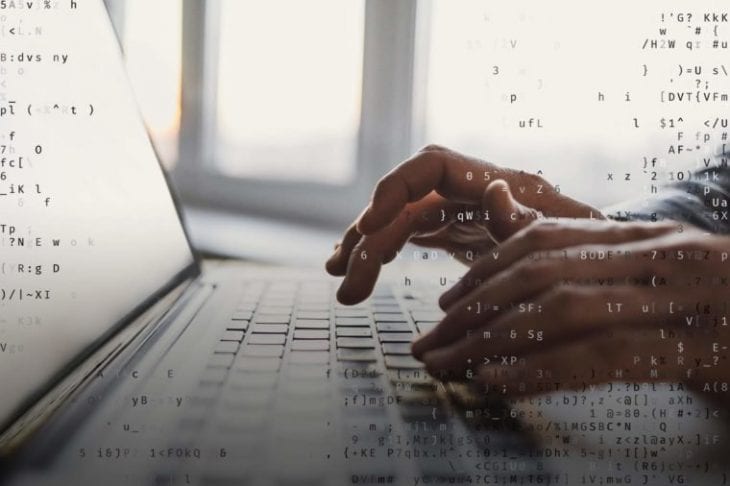Traveling can be fun, an escape from reality and what not. Did it ever occur to you that traveling latches on multiple security constraints? The last thing on our mind would be online security because traveling opens new doors for identity theft. This is one aspect while there are multiple ways how your security could be at risk while you are traveling or sitting at the beach tanning your body.
Things that we never considered in our lifetime should be on your fingertips because losing your private details on a foreign land would be devastating. Let’s discuss the proper guidelines you can explore to avoid such security breaches.

Source: Reader’s Digest
Contents
Invest in a burner device (phone or laptop)
If you are genuinely concerned about your laptop or phone security, then try to travel with a lower end, less costly prepaid device. It’ll be a smaller risk than losing your expensive devices; you can make calls and even browse the internet. But traveling lighter will reduce the risk of scams and theft in case your device gets stolen, snatched and if you forget it somewhere. Don’t confuse the burner phone with just one option though; these offer plenty more protection beyond traveling.
Traveling is a hassle itself if you are wondering it’s a weekend escape to Hawaii. Traveling and staying protected do not go hand in hand because you lose things more often and forget them as well. It’s as forgetting cash on a local sidewalk, and if you lose your phone, then it’ll be the end of the world for your private information stored on your phone.
Make Passwords Hack Proof
I’m sure the websites you visit frequently have your password stored such as on Facebook, Gmail, Google Drive, LinkedIn. These are automatically saved passwords or auto-populated in websites and apps. It is convenient and entering password again is not required. However, if you are planning to travel then CHANGE this habit asap! This leaves you vulnerable to potential threats in case your device gets stolen or lost.
Before hopping on a plane, try to ensure that your passwords are strong to reduce the chances of theft and make use of two-factor authentication on all your devices to safeguard and protect information-sensitive accounts such as bank accounts, Gmail and business identity. In case someone tries to enter your password and types in a wrong password, you will be notified immediately. This will happen if your password is sought to change as well because you will receive the PIN code for it.
Further, try to get a solid password manager. Having password managers may seem old school but any type of security is a bonus in today’s digital realm. These apps not only protects your passwords but also store them at one place with extra encryptions.
Refrain from unsecured networks with a VPN

Traveling and not looking for free WiFi networks sounds bizarre. Staying at the hotel or waiting at the airport — you would want to look for free WiFi hotspots and using your phone data would mean draining your battery inclusive of roaming charges. Majority of the times, hackers prey on these free WiFi networks to penetrate users smart devices. Once connected to one would make you lose your control on your device.
What to do? The best alternative is to opt for a Virtual Private Network VPN. Having a VPN is the best choice because it helps achieve anonymity while surfing the web. A VPN is a tool that will give you a shared IP address while keeping your real IP hidden. All your online traffic will go through that shared IP making your identity private and safe.
Hence, while connecting to a free WiFi, your network will be securely encrypted removing any chance of a hacker attack. VPN uses an AES 256 bit encryption technology that allows you to directly connect to the website from your device removing any mediator channels in between. Also, the fastest VPN will let you stream geo-restricted content without buffering which is a bonus for your traveling needs.
Avoid Social Media Check-Ins
Check-ins is the new in because of Facebook’s check-in feature everyone wants the world to know where they are and what they are doing. It’s the most in thing to do while reaching a destination, whether it’s a local cafe or a beach. Only 32% of the people avoid posting and sharing their statuses online while traveling but the latter does what it takes to make themselves visible online.
By sharing your location or agenda on social media accounts while traveling; is an invite to thieves to track you, making it easier for them to hunt you. Instead, posting your pictures after your trip ends from your home laptop is not a bad idea. You’d lose some spotlight of showcasing the world about your presence, but you will be safe.

Source: Consumer Reports
Monitor Credit Card Statements
Keeping a check on your credit card and account details is a must to ensure that the money you spent is shown on your bank statements. At times while traveling credit card details are virtually harvested by hackers who then us it to purchase items from foreign countries. Or skimming frauds take place that loots your atm pins.
This can happen to anyone, anytime because skimming frauds have become very common. 53% of the respondents claim that monitoring financial transactions is tricky and can be a hurdle to keep a check on it regularly.
Bottom line:
It all comes down to acknowledging the importance of your security while traveling. We believe traveling is child’s play and no harm could ever happen to you because it’s a secure region. If you follow these protocols mentioned above, then you have a strong chance of avoiding a security breach while traveling.
Why put your security on the line in an unknown territory where you do not have any jurisdiction.
